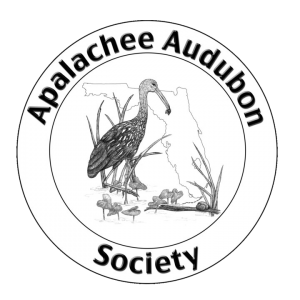Apalachee Audubon Society Statement about Inclusion of Black and Non-white People
One of the central tenets of Apalachee Audubon Society policy is to build an appreciation for birds and other denizens of our natural world. Our organization recognizes that this appreciation cannot and should not come from one segment of the population. As such, we seek to include as many voices as possible in our organization, from our board to our membership to our partners. We believe diversity in people creates a diversity of the mind which, in turn, makes our community stronger for both birds and people.
By and large, the birding community, as well as most societies that enjoy outdoor recreational hobbies, is overwhelmingly White. This particular composition of participants fuels stereotypes that are promoted in media and sustained by implicit biases rooted in racism. Additionally, the lack of diverse voices and identities represented emphasizes the disconnect between the lived-experiences of Black birders and the perceptions of white birders. As a result of the industry-wide erasure of diverse experiences in the outdoors, there are real-life consequences faced by Black and non-white communities who already experience underrepresentation, barriers to access, and overt racism while engaging in birdwatching.
Our goal is to build bridges between communities, make lifelong connections, and facilitate growth through the same shared love of conservation and birds. Apalachee Audubon fully acknowledges that African-Americans, in particular, still may not feel safe and welcome in many of our outdoor spaces due to a long legacy of direct and indirect racial violence and discrimination caused by institutional racism. Furthermore, we recognize the disproportionate impact on the health and livelihood of Black communities as a result of systemic oppression and environmental injustice.
We take seriously our responsibility to engage with Black and non-white birders in our community. In the last several years, Apalachee Audubon has developed an after- school program at Pineview Elementary, where predominantly African-American students learn about birds, conservation, and the outdoors. We have helped to restore habitat, educational opportunities, and a strengthened sense of place to an urban park on the South Side of Tallahassee. These are just a couple of examples of Apalachee Audubon achieving its mission, the protection of the environment through education, appreciation, and conservation, while prioritizing the need to educate and uplift the voices of people from marginalized racial and ethnic groups, empower new advocates for bird conservation, and encourage meaningful connections within our community to the environment through our shared appreciation of birds. Our work will continue on these fronts.
A great deal of work remains in the journey towards racial justice, inclusion, and equity in the birding community in North Florida. Apalachee Audubon acknowledges the existing and long-ignored structural racism that contributes to the inaccessibility of birdwatching as a hobby. We cannot fix this deeply-rooted issue overnight. However, we commit ourselves to work, internally and externally, for the benefit of Black and non- white members of the birding community. Furthermore, Apalachee Audubon resolves to commit to increasing Black and non-white members’ enjoyment of the outdoors and improving their lived experiences while they engage in birdwatching.
Changes need to be made for the birding community to be a safer and more inclusive place for birders, especially Black birders. We know structural racism has been ignored for too long. Apalachee Audubon recognizes that there is no room for silent support in dismantling systemic racism in the birding community. The actions that you take individually can help us as an Audubon chapter and as a community. We must all stand together on the long, difficult, and vital journey towards racial justice, inclusion, and equity.
We, Apalachee Audubon, commit ourselves to listen, learn, and work to drive the necessary change to make the birding community anti-racist and more inclusive to underrepresented groups. We look forward to working with you, our members, to make our region a prime example of what equitable community engagement and effective conservation can look like.
